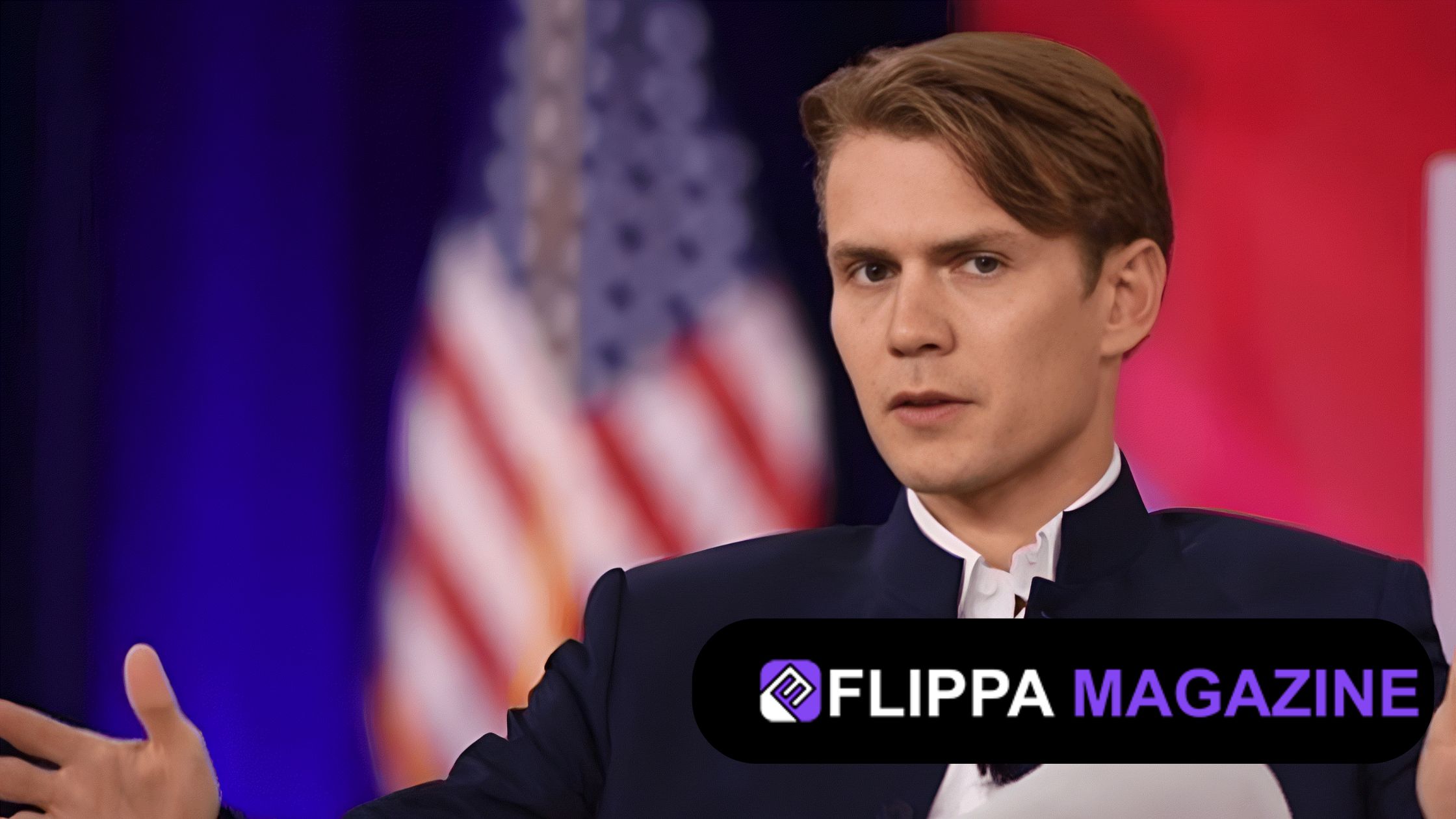In the fast-paced world of finance, few figures capture as much curiosity and discussion as George Farmer. Known for his sharp business instincts, disciplined investment approach, and resilience under pressure, Farmer represents the new generation of global financiers who blend traditional market wisdom with forward-thinking innovation. As the financial landscape evolves in 2025, his journey offers invaluable insights into how vision, risk management, and adaptability can build a powerful financial empire from the ground up.
This article explores George Farmer’s financial strategies, the lessons embedded in his journey, and the underlying principles that continue to shape his success in an increasingly complex global economy.
Quick Bio Table
| Category | Details |
|---|---|
| Full Name | George Farmer |
| Nationality | British |
| Profession | Businessman, Investor, Financial Strategist |
| Known For | Leadership in tech-based finance and strategic investments |
| Education | Oxford University, Master’s in Theology and Management |
| Key Role | Former CEO of Parler; Investor in fintech and infrastructure projects |
| Years of Experience | Over 15 years in finance, policy, and corporate leadership |
| Core Expertise | Market analysis, venture capital, and wealth management |
| Business Philosophy | “Calculated risk is the bridge between vision and victory.” |
| Major Achievement | Diversified investment portfolio across global sectors |
| Current Focus | Strategic financial innovation and sustainable market growth |
| Leadership Style | Analytical, ethical, and data-driven |
| Vision for 2025 | Promoting responsible finance and long-term capital integrity |
.
The Foundation of George Farmer’s Financial Philosophy
At the core of George Farmer’s financial empire lies a disciplined philosophy: every investment should be purposeful, data-informed, and grounded in a broader economic vision. Farmer’s early exposure to political and economic discourse shaped his understanding of how macroeconomic shifts influence financial outcomes. He developed a pragmatic mindset that balanced risk-taking with ethical governance—a principle that still guides his approach to wealth creation today.
Three pillars define his philosophy: risk intelligence, long-term strategy, and ethical profitability. Risk intelligence means understanding volatility rather than fearing it. Long-term strategy ensures that every move aligns with a broader financial goal, not short-term speculation. Finally, ethical profitability underscores the idea that true financial power is sustainable only when it benefits both investors and the wider market ecosystem.
Early Career: Merging Academia with Market Ambition
Before entering the corporate world, George Farmer’s education at Oxford provided him with an intellectual foundation that blended economics, ethics, and analytical reasoning. His early exposure to classical studies helped refine his decision-making framework—a unique combination of logic, moral clarity, and strategic patience.
Upon transitioning into finance, Farmer joined several investment groups focused on infrastructure and global commodities. These early ventures were more than professional experiences—they were laboratories of learning. He gained firsthand knowledge of market cycles, capital flow behavior, and the psychology of investors. His analytical skill set, paired with a calm temperament under pressure, positioned him to excel in both high-risk and high-reward sectors.
Strategic Diversification: The Cornerstone of His Empire
One of Farmer’s most defining strategies is diversification—not just across industries, but across risk profiles. His financial empire was not built on one sector or a single bet; it was the result of layered investments in technology, energy, infrastructure, and digital finance.
He recognized early that the 21st-century market rewards adaptability. Farmer’s diversification model emphasizes three critical dimensions: geographic spread (minimizing exposure to regional instability), industry variety (balancing tech growth with tangible assets), and innovation integration (investing in emerging technologies such as AI-driven finance).
In 2025, this model remains his competitive advantage, protecting his capital base while allowing for sustainable expansion in dynamic global markets.
Risk Management: Turning Uncertainty into Opportunity

For George Farmer, risk is not a threat—it’s a tool. His approach to risk management centers on strategic anticipation, not reactive decision-making. He studies data trends, regulatory signals, and political developments to predict shifts before they affect market stability.
Farmer’s methods rely heavily on data modeling, real-time analytics, and diversified risk hedging. He is known for creating what he calls “financial insulation,” where every investment is protected by counterbalancing assets. For example, if a high-growth tech startup investment shows volatility, he offsets it with stable income-generating assets like real estate or infrastructure funds. This balance allows his portfolio to thrive even during economic downturns.
The Digital Era: Farmer’s Foray into Fintech and Innovation
As the financial world entered the digital age, George Farmer positioned himself at the forefront of fintech innovation. His tenure as CEO of Parler introduced him to the power of digital platforms—not only as communication tools but as financial ecosystems capable of influencing markets and investor sentiment.
Farmer’s post-CEO years focused on integrating blockchain, digital currency, and AI-driven analytics into his investment operations. He understood that the future of finance would be determined by data accessibility, transparency, and automation. By 2025, many of his ventures are deeply embedded in these technologies, offering scalable and efficient solutions for wealth management and financial forecasting.
Building Influence Through Ethical Capitalism
While financial success defines much of his career, Farmer’s approach remains anchored in ethical capitalism. He consistently advocates for responsible wealth generation—investments that create value not just for shareholders but for society.
This ethos is visible in his sustainable energy initiatives, philanthropic contributions, and mentorship of emerging entrepreneurs. Farmer believes that the credibility of any financial empire rests on integrity. He often remarks that “capital without conscience is a collapsing currency,” a statement that resonates across his projects and partnerships.
Lessons in Leadership and Financial Discipline
George Farmer’s leadership style blends strategic patience, data-driven action, and human insight. He leads with a belief that success in finance requires both intelligence and emotional stability. His decision-making process integrates three factors:
-
Analytical data: every major move is supported by research and risk metrics.
-
Empirical experience: drawing from years of hands-on investing.
-
Collaborative wisdom: surrounding himself with advisors who challenge assumptions.
These traits not only shape his empire but also inspire young professionals to view finance as both an art and a science—a discipline where emotional control is as valuable as financial acumen.
Navigating the 2020s: Resilience in a Volatile Economy

The 2020s have been characterized by market shocks—from inflation surges to global policy shifts—and Farmer’s empire has endured through it all. His adaptability comes from understanding that volatility is not chaos but a reflection of change.
He approaches economic turbulence as a recalibration period—a chance to reallocate capital, reevaluate priorities, and reinforce liquidity. By maintaining low leverage ratios and high asset liquidity, Farmer ensures his financial network can move swiftly in times of uncertainty. This flexibility keeps his empire not only stable but also opportunistic during downturns.
Wealth Building Principles for the Modern Investor
George Farmer’s financial journey offers several practical lessons for modern investors seeking long-term growth in 2025:
-
Invest with intention: Every financial decision should serve a purpose beyond immediate gain.
-
Diversify intelligently: Spread risk across industries and regions while maintaining focus on sectors you understand.
-
Adapt to innovation: The future of finance depends on technology integration.
-
Preserve capital before chasing profit: Stability builds freedom for opportunity.
-
Stay ethical: Reputation compounds faster than interest.
These principles encapsulate the timeless wisdom behind his continued success and influence.
The Legacy of Vision and Adaptability
George Farmer’s financial empire is not merely defined by wealth—it’s defined by vision, discipline, and responsibility. His ability to merge traditional financial models with modern innovation positions him as a figure of enduring relevance.
In an era when many chase short-term gains, Farmer’s approach reminds investors that sustainable success is built on foundation, not frenzy. His story continues to inspire professionals who seek to combine ethics with excellence in the evolving world of finance.
Conclusion
The rise of George Farmer in the financial world underscores a universal truth: great empires are not built on luck but on layered wisdom, adaptability, and moral clarity. His journey from a disciplined academic to a global investor reflects the evolution of finance itself—where intelligence meets integrity.
As 2025 unfolds, his strategies remain profoundly relevant: invest with purpose, balance innovation with caution, and let ethics guide every decision. George Farmer’s legacy serves as both a blueprint and a challenge for anyone aspiring to master the art of financial leadership in a world that never stops changing.
Frequently Asked Questions (FAQs)
1. What is George Farmer best known for in the financial world?
George Farmer is recognized for his strategic diversification across technology, infrastructure, and digital finance, as well as his commitment to ethical investing and data-driven decision-making.
2. How did George Farmer start his financial career?
After completing his studies at Oxford, Farmer entered investment and policy circles, focusing on infrastructure and global market opportunities. These experiences shaped his understanding of macroeconomic finance.
3. What are George Farmer’s main investment principles?
His key principles include risk intelligence, long-term strategy, diversification, and ethical profitability—ensuring every investment contributes to sustainable growth.
4. How does George Farmer manage financial risk?
He uses a method of “financial insulation,” balancing volatile assets with stable investments to minimize exposure during economic downturns.
5. What is George Farmer’s view on fintech and digital currencies?
Farmer sees fintech as the natural evolution of global finance and actively integrates blockchain and AI-driven analytics into his investment strategy.
6. What lessons can investors learn from George Farmer’s approach?
Investors can learn the importance of patience, data analysis, and maintaining moral integrity while navigating complex markets.
7. What makes George Farmer’s financial empire unique?
His empire stands out for blending traditional financial prudence with modern innovation, all underpinned by a clear commitment to ethics and long-term impact.
FOR MORE : FLIPPAMAGAZINE












